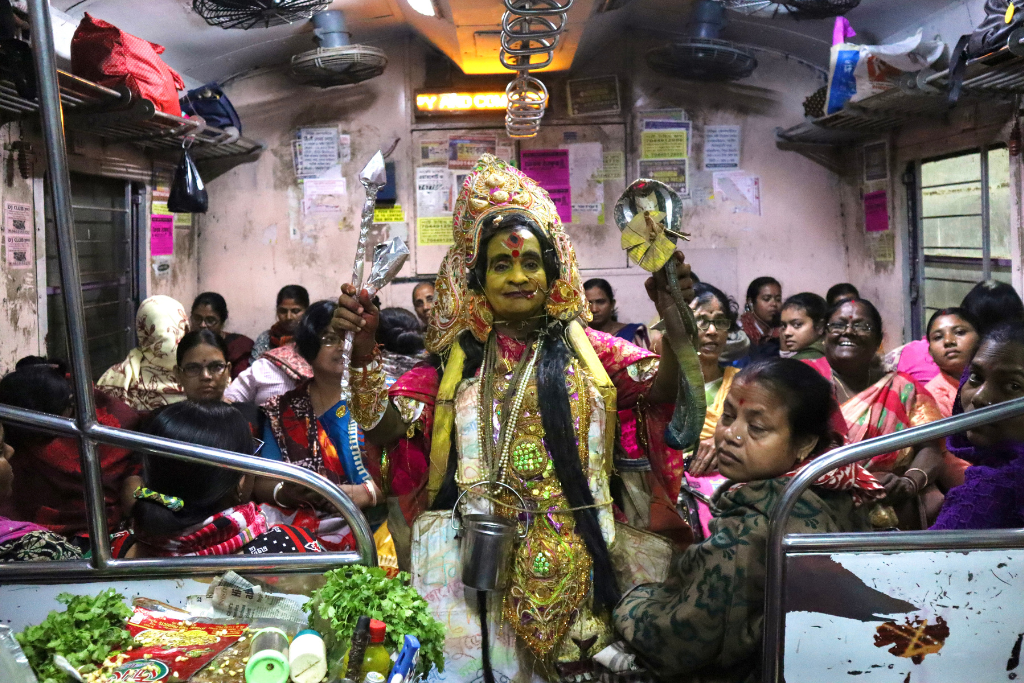
What it’s like to travel in an all-woman train
Introduced by the West Bengal government, Matribhumi trains are meant exclusively for women's mobility. Though two mixed compartments were added post the protests in 2015, women still opt for it, valuing its comfort and safety.
The Kolkata Suburban Railway, launched in 1952, is a vital rail network in India, catering to lakhs of people, connecting urban and rural areas for work, education, healthcare and leisure. These trains are particularly crucial for the mobility and economic progress of rural women who, with 30 percent employment in West Bengal, surpass the national average. However, securing space for women on these trains has been a challenge. Initially, women-only Matribhumi local trains were introduced in 2009 but faced protests, resulting in limited designated sections for women by 2015. Here is a look at the significance of these trains for women in West Bengal, the areas where such services are yet to reach, prompting women to use specific compartments as an alternative.
At Kolkata’s Dhakuria station, a sign marks the platform area for the women’s compartment in local trains – a significant feature in both urban metros and rural rail systems. These trains, integral to West Bengal’s Eastern Railway Division since their establishment in 1952, consist of four subdivisions. Typically, a standard local train comprises 12 compartments, among which two are specifically allocated for women.
In 2009, then Railways Minister, and present Chief Minister of West Bengal, Mamata Banerjee, launched the Matribhumi local trains, reserved entirely for women. This was done to aid the mobility of women in urban and rural areas of the state. After massive protests by men in 2015, the Matribhumi local designated two “general” compartments on the train. However, several women continue to prefer travelling by the Matribhumi local, as it is less crowded and makes them feel safer.
Also Read: World’s highest railway bridge brings Kashmiri villagers hope
At the end of their workday, familiar faces on the Matribhumi local – Mala, Asha, and Joyita (L-R) – relax in their usual seats, bonding over their favourite soap opera on Mala’s smartphone. These trains, known for their spirited atmosphere, have become bustling hubs for women passengers, fostering vibrant connections. Operating across the cityscape and along the rural Sealdah-Ranaghat line, the Matribhumi locals create thriving communities for their diverse ridership.
In the packed ladies’ compartment of the Matribhumi local, a hawker showcases a vibrant array of soft toys to the crowd. The rush hour transforms this space into a bustling marketplace, offering a prime opportunity for vendors to maximise their sales.
Men hawkers stand out as the rare male presence, vending tea, snacks, fruits and homemade insecticides. These vendors rely on creative catchphrases to engage passengers engrossed in chats, music or looking after kids. Amid this, Munshi Ram boldly pitches his oranges with a daring assurance: “Try before you buy – satisfaction guaranteed or no payment required.”
Women carefully select oranges from the basket, aiming for the sweetest ones – an essential snack for winter travels and a treat for their families back home. Though there are whispers that Munshi Ram’s bold guarantee might not always hold, his oranges tend to deliver on their promise of sweetness.
Also Read: The sweet story of Kolkata’s Rabrigram
Jewellery, whether trendy or classic, garners significant interest in women’s compartments and aboard the Matribhumi local. Vendors selling jewellery attract a consistent customer flow in these spaces. Before buying, many women engage in thorough discussions with friends, weighing their options. The hawkers display admirable patience while customers deliberate their choices.
Most hawkers on the local trains are men, and Sumitra Debi is relatively new to this role. Hailing from Hogla village in Bengal, she previously farmed water chestnuts until it became financially unsustainable due to a subpar yield last season. This setback led Sumitra to venture into hawking. Despite earning a better income through this avenue, she keeps her part-time profession a secret from her family. They continue to believe that she works as a domestic helper in the city, as they wouldn’t approve of her hawking endeavours.
Also Read: These rural women refuse to give up
At 6:45 am, Mandira steals a brief moment for a nap while standing in the women’s compartment of a local train, traversing the rural Ranghat-Sealdah route. The resident of Harispur village toils as a domestic worker in Dum Dum, Kolkata. Her day commences at 4:30 am, when she takes up her household chores – cooking for her family and tidying her home. Mandira concludes her workday by boarding the evening Matribhumi local, arriving home around 9 pm. Struggling to find ample rest, she has mastered the art of dozing off during train rides.
Unlike Mandira, some passengers manage to kick-start their day with enthusiasm. Take Promila Mandal, another domestic worker in Kolkata, who engages in lively discussions with fellow commuters. They often debate the pros and cons of riding local trains without a ticket, particularly towards month-end when finances are strained.
Matribhumi locals don’t operate on every rural route, like the Sealdah-Namkhana line. For women travelling alone, especially those working without a male companion, the women’s compartments offer a sense of safety. Beginning their trip from the coastal Namkhana village, women employed in night shifts in Kolkata prepare to embark on this train.
Pranati Khatua, a panchayat member from Debimathurapur on Sagar Island, is returning from a city training workshop. She’s been pivotal in promoting community microfinance loans among women in her village. Marriage and raising children haven’t hindered this determined 38-year-old. She strongly advocates for women to uphold financial independence regardless of any obstacles.
The lead image shows Kumar Abhijit, a bahurupi artiste, dressed up as goddess Jagaddhatri and performing his art in a local train.











